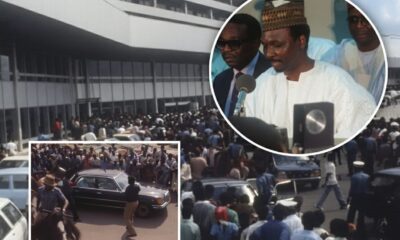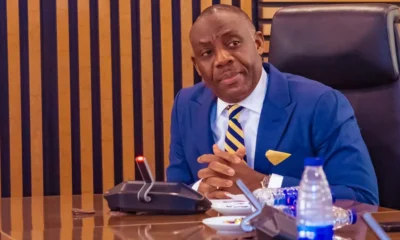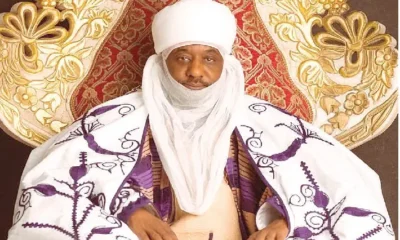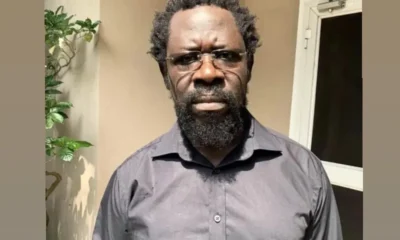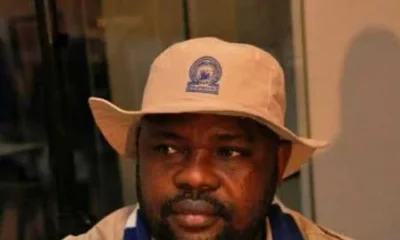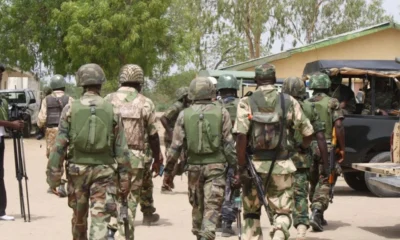Columns
Ex- President Goodluck wife Patience Narrates how she met her husband .
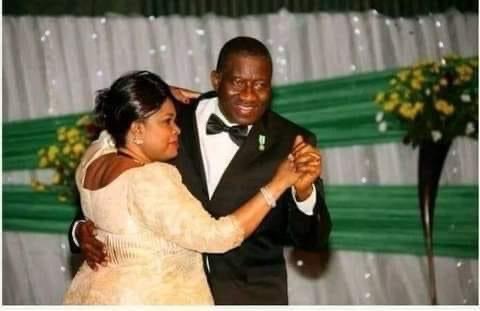
On an interview with Newsmen the former president wife of Nigeria said;
“’We first met at the Rivers State College of Education, Port-Harcourt, where I was a student. He was my Biology lecturer.
Later, he left for the University of Port Harcourt to pursue his Ph.D.
“We met again at the University of Port Harcourt when I went for my undergraduate degree.
That was where our relationship began. He took a keen interest in me because I was a brilliant and smart student.
”It was love at first sight on his part. But it never crossed my mind that it would lead to a serious relationship.
My first impression of him was ‘this tall, dark, handsome young man’.”Further interaction with him also showed that he came from a good Christian home just like I did.
His humble and gentle disposition caught my attention and most importantly, his intelligence.”— First Lady Patience Faka Jonathan (on how she met her husband), 2012.
Columns
Here’s the moment General Yakubu Gowon returned to Nigeria from ex!le on December 5, 1983 after he was pardoned by Shehu Shagari.
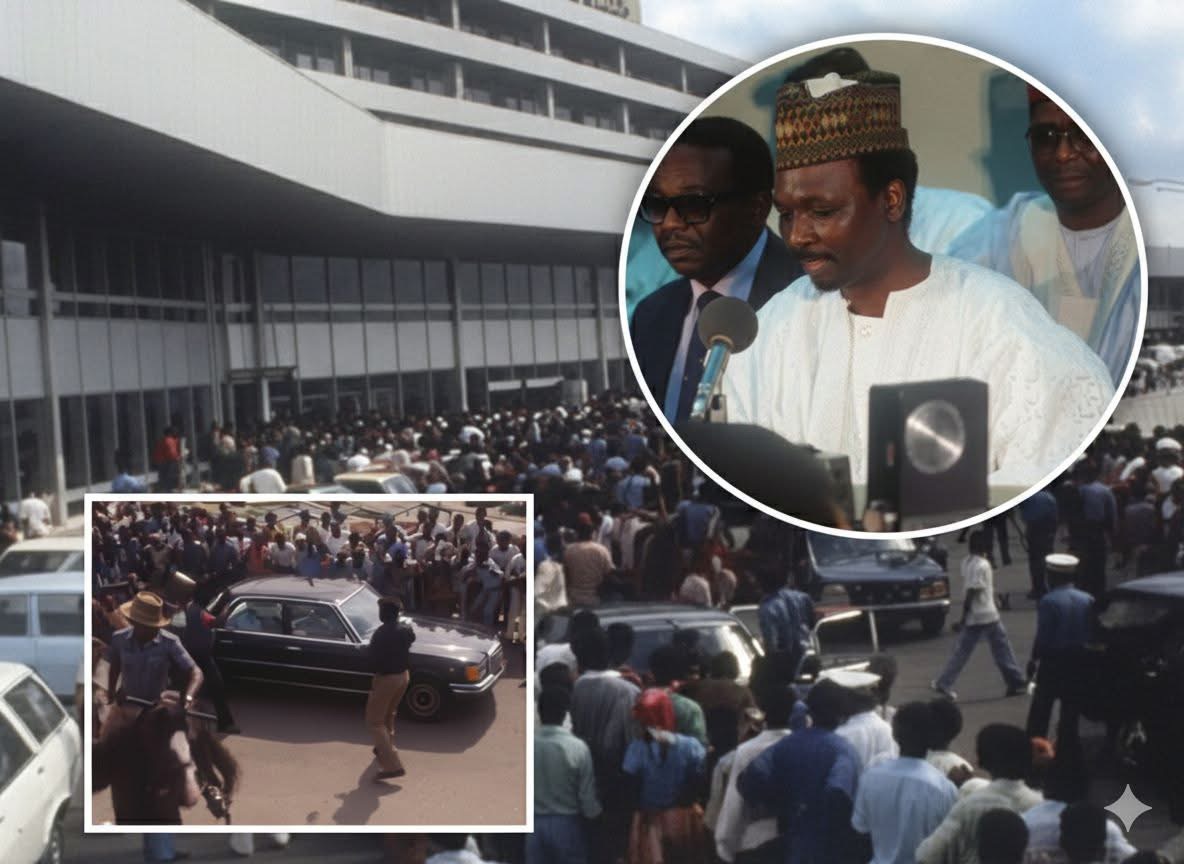
Here’s the moment General Yakubu Gowon returned to Nigeria from ex!le on December 5, 1983 after he was pardoned by Shehu Shagari.
The background:
On July 29, 1975, Yakubu Gowon was removed from office by General Murtala Mohammed. Gowon fled to the UK, where he pursued higher education, earning a PhD in political science from the University of Warwick in the early 1980s. He lived quietly in North London, integrating into the local community.
In 1981, under President Shagari’s administration, Gowon was officially pardoned and his rank as General reinstated. This cleared the way for his return two years later (1983).
His arrival:
Gowon arrived back in Nigeria in 1983 amid a warm reception, but which analysts said was notably low-key. Since 1983, Gowon has focused on philanthropy and peacebuilding. He founded the Yakubu Gowon Centre in 1992 to address governance and health matters. He also initiated the “Nigeria Prays,” through which he has led prayer rallies for peace, including against Boko Haram. Now 91, he is an elder statesman, often credited with helping preserve Nigeria’s unity after the civil war.
Photo: they were taken on his arrival at the Murtala Muhammed International Airport, cleaned and collaged.
Credit: Ethnic African Stories
Columns
Gloria Okon: The Mystery Behind One of Nigeria’s Most Controversial Deaths
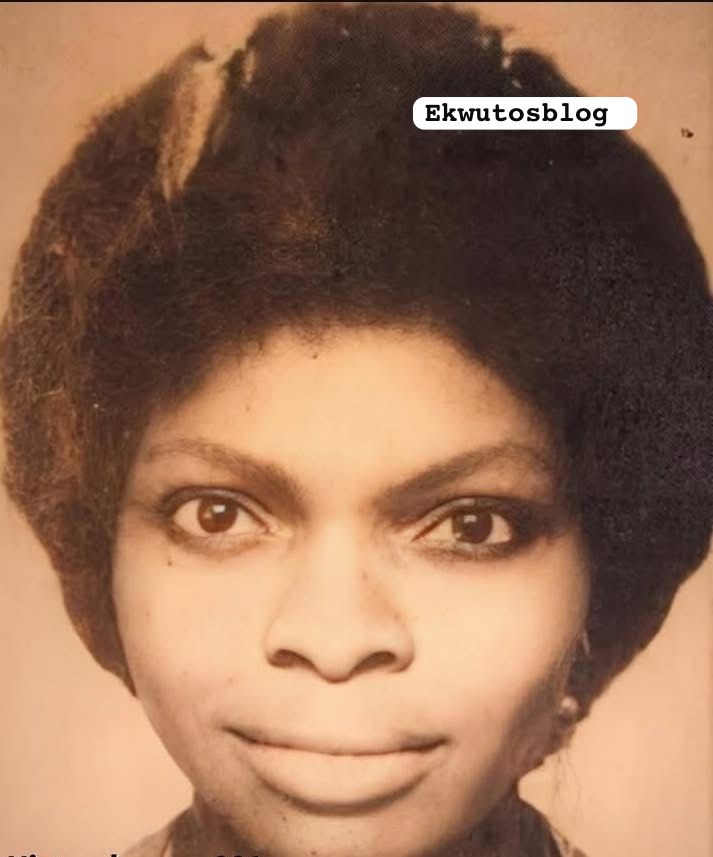
Gloria Okon’s story remains one of Nigeria’s most debated and mysterious criminal cases, intertwining issues of corruption, media intrigue, and conspiracy. In 1985, she was arrested at the Aminu Kano International Airport for drug smuggling—a case that would later spiral into a web of unanswered questions, political rumors, and tragedy.
On April 22, 1985, Gloria Okon was apprehended by operatives of the National Security Organization (NSO), Nigeria’s intelligence agency at the time. Reports claimed that she was caught with 56.70 grams of a prohibited substance and in possession of foreign currencies. The arrest immediately drew attention, not only because of the nature of the crime but also because of Okon’s alleged connections to powerful individuals within Nigeria’s political elite.
Just six days later, on April 28, 1985, Gloria Okon was reported dead while in NSO custody. Her death was shrouded in secrecy and controversy. Authorities at the time claimed she had committed suicide by ingesting poison, but many Nigerians questioned this version of events. The speed with which the case was closed and the lack of transparency surrounding her death fueled public suspicion.
Rumors soon spread that the woman who died in custody was not the real Gloria Okon but a substitute, and that the real Okon had been smuggled out of the country with the help of influential figures. The alleged cover-up theory gained traction due to Nigeria’s tense political climate under General Muhammadu Buhari’s military regime, where the government had declared a strict “War Against Indiscipline” and was cracking down on corruption and drug trafficking.
The case drew further attention when the late journalist Dele Giwa, then editor-in-chief of Newswatch magazine, began investigating the circumstances surrounding Okon’s death. Giwa reportedly received information suggesting there were deeper political connections to the case. In 1986, before he could publish his findings, Dele Giwa was killed by a parcel bomb at his home in Lagos—the first known assassination of a journalist by mail bomb in Nigeria. His death intensified the mystery and strengthened suspicions that Gloria Okon’s case was linked to powerful figures who wanted the truth buried.
Over the years, the Gloria Okon case has become symbolic of Nigeria’s struggle with transparency, justice, and the influence of power over truth. Although no official resolution was ever reached, the incident remains a haunting chapter in Nigeria’s history—one that exposes the dangers of corruption, the suppression of press freedom, and the unanswered questions surrounding state accountability.
Gloria Okon’s name continues to resurface in discussions about Nigeria’s political past, serving as a reminder of how unresolved stories can echo across generations. Her death, and the subsequent killing of Dele Giwa, are often cited together as defining moments in the nation’s fight for truth and justice.
Sources:
The Guardian Nigeria: “The Gloria Okon Story: A Tale of Mystery, Power, and Silence” (2019)
Newswatch Magazine Archives (1986): Coverage of Dele Giwa’s investigation
Premium Times Nigeria: “How the Gloria Okon Case Sparked Nigeria’s First Media Assassination” (2021)
Daily Trust Nigeria: “The Death of Gloria Okon and the Silence of Power” (2020)
Columns
Barnabas and Amaka Igwe: The Tragic End of Two Voices for Justice
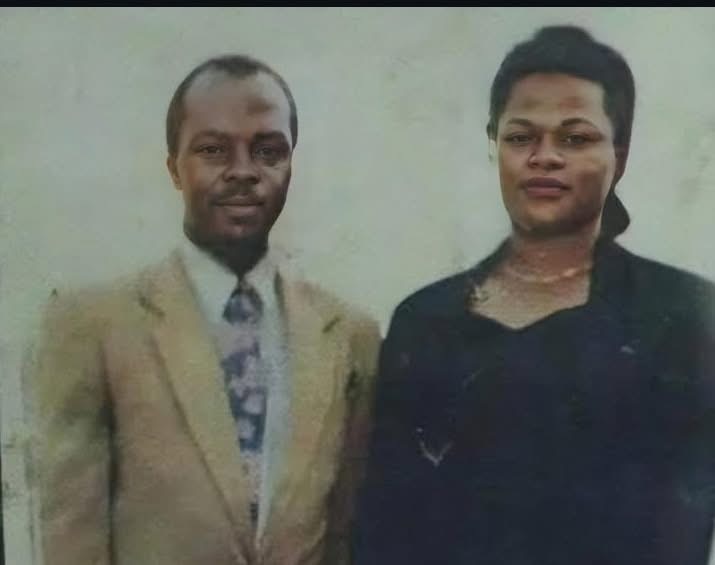
The image depicts the late Nigerian lawyer and human rights activist, Barnabas Igwe, and his wife, Amaka Igwe, both of whom were brutally murdered in September 2002 in Anambra State, Nigeria. Their deaths remain one of the most shocking and symbolic acts of violence against justice advocates in Nigeria’s history.
Barnabas Igwe was the Chairman of the Nigerian Bar Association (NBA) in Anambra State, where he became known for his fearless criticism of corruption and abuse of power. His wife, Amaka Igwe, served as a magistrate, sharing her husband’s passion for fairness and integrity within Nigeria’s legal system. Together, they formed a formidable duo committed to the rule of law and the protection of human rights.
In the months leading up to their deaths, the couple had publicly opposed state-endorsed vigilante groups in Anambra State, accusing them of perpetrating violence and extrajudicial killings under the guise of community protection. They also criticized the administration of the then-governor, Chinwoke Mbadinuju, for enabling lawlessness and failing to protect citizens.
On the night of September 1, 2002, tragedy struck when unknown assailants ambushed and murdered the couple on their way home from a meeting. Their killings sent shockwaves across Nigeria, sparking nationwide outrage and calls for justice. The Nigerian Bar Association declared their deaths an attack on democracy and vowed to continue their fight for justice and reform.
Even decades later, their story stands as a reminder of the dangers faced by those who dare to speak truth to power in Nigeria. The legacy of Barnabas and Amaka Igwe endures as a symbol of courage, love, and unwavering commitment to justice.
Sources:
Vanguard Nigeria: “The Untold Story of the Murder of NBA Chairman Barnabas Igwe and His Wife” (2012)
The Guardian Nigeria: “Remembering Barnabas and Amaka Igwe: 20 Years After” (2022)
-

 Politics12 months ago
Politics12 months agoMexico’s new president causes concern just weeks before the US elections
-
Business12 months ago
US court acquits Air Peace boss, slams Mayfield $4000 fine
-

 Trending12 months ago
Trending12 months agoNYA demands release of ‘abducted’ Imo chairman, preaches good governance
-
Entertainment12 months ago
Bobrisky falls ill in police custody, rushed to hospital
-
Entertainment12 months ago
Bobrisky transferred from Immigration to FCID, spends night behind bars
-

 Politics12 months ago
Politics12 months agoRussia bans imports of agro-products from Kazakhstan after refusal to join BRICS
-

 Politics12 months ago
Politics12 months agoPutin invites 20 world leaders
-
Education1 year ago
GOVERNOR FUBARA APPOINTS COUNCIL MEMBERS FOR KEN SARO-WIWA POLYTECHNIC BORI

